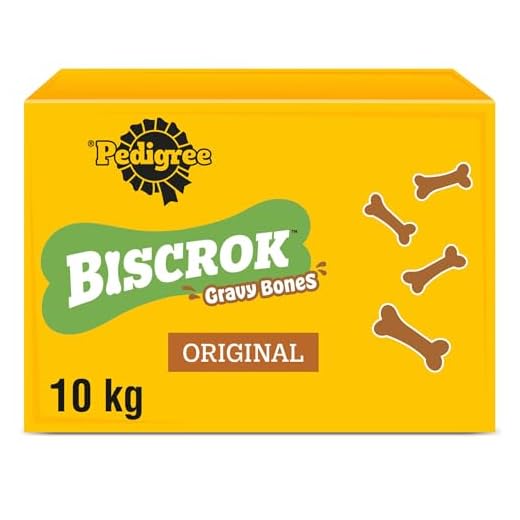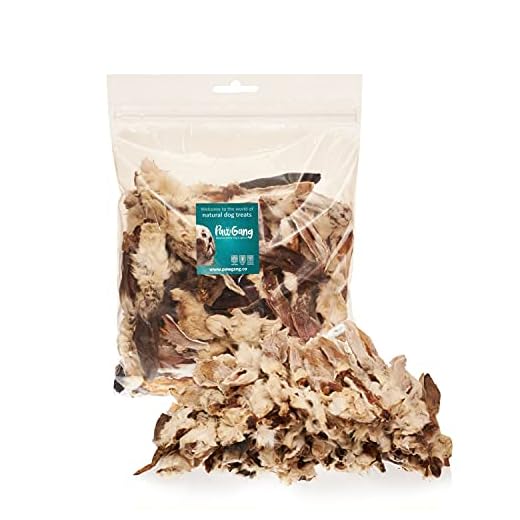






It’s best to avoid feeding that popular street snack to your young pup. While it may seem tempting to share your meal, the ingredients often found in these snacks can be harmful to their developing digestive systems.
Many varieties contain high levels of salt, preservatives, and additives that can lead to health issues. Young animals are particularly sensitive to sodium, which can cause dehydration and other complications. Additionally, certain toppings and fillers could be toxic, posing risks to your furry friend.
If you’re looking for safe alternatives, consider treats specifically designed for young canines. These options provide balanced nutrition and cater to their unique dietary needs. Always check with your veterinarian before introducing any new food into their diet to ensure it aligns with their health requirements.
Considerations Regarding Canine Treats
Opting for processed meat products as a snack for young canines may not be the best route. These treats often contain high levels of sodium and preservatives, which can lead to health issues over time. Instead, focus on wholesome alternatives that are specifically formulated for their nutritional needs.
During my experience with my own pup, I discovered that introducing a variety of natural snacks was far more beneficial. Fresh fruits like apples or bananas, and vegetables such as carrots or sweet potatoes, not only served as tasty rewards but also contributed to overall health.
When looking for suitable diet options, it’s wise to consult resources that focus on nutritious meals tailored to specific breeds. For example, check out the best dog food for blue heelers to ensure you’re providing the right balance of nutrients.
Always observe how your furry friend reacts to new foods. If any signs of discomfort arise, cease offering that particular item and consult a vet. Keeping treats simple and healthy is key to ensuring a happy and thriving companion.
Potential Risks of Feeding Hot Dogs to Puppies
Offering these processed meats can lead to various health issues in young canines. High sodium content increases the risk of dehydration and can lead to kidney problems over time. Always check for added preservatives, which may contain harmful substances like nitrates and nitrites.
Choking hazards are a significant concern. The size and texture can cause blockages in the throat or digestive tract, especially in smaller breeds. It’s crucial to cut any food into manageable pieces to mitigate this risk.
Allergic reactions can occur. Some young animals may be sensitive to certain ingredients found in these treats, leading to symptoms like itching, gastrointestinal upset, or more severe reactions. Monitoring your pet after introducing new foods is essential.
Weight gain is another issue. Regularly feeding these snacks can contribute to obesity, as they are calorie-dense and often lack nutritional value. This can lead to long-term health complications, including joint problems and diabetes.
Finally, consider the risk of pancreatitis. Rich, fatty foods can irritate the pancreas, leading to inflammation. Symptoms include vomiting, abdominal pain, and lethargy. If you suspect your furry friend is unwell after consuming these meats, consult a veterinarian immediately.
Safe Serving Sizes for Puppy Treats
When offering treats to your young companion, keep portions small. A general guideline is to limit treats to no more than 10% of their daily caloric intake. For instance, if your furry friend requires 400 calories a day, aim for treats that amount to around 40 calories.
Consider the size of the treat as well. For smaller breeds, cut treats into tiny pieces, while larger breeds can handle slightly bigger portions. A good rule of thumb is to provide a treat that is roughly the size of their paw. This helps prevent choking hazards and ensures they enjoy the reward without overindulging.
Monitor their reaction to new snacks. Introduce new items gradually, starting with a small piece and observing for any digestive issues. If your little one has a sensitive stomach, opt for softer, easily digestible options.
Always keep an eye on weight. If your pup seems to be gaining too much, reduce the frequency or size of the treats you provide. Maintaining a balanced diet is key to their growth and overall health.
Lastly, remember that variety matters. Rotate the types of treats you offer to keep mealtime exciting, while ensuring they remain nutritious. Fruits like blueberries or small pieces of pumpkin can be great alternatives to traditional snacks, providing additional health benefits.
Identifying Harmful Ingredients in Hot Dogs
Before sharing any treat with your canine companion, it’s crucial to examine the ingredient list. Many commercial sausages contain components that could be harmful to young canines.
Common Harmful Components
- Nitrates and Nitrites: These preservatives can lead to health issues, including cancer risk. Opt for products without these additives.
- High Sodium Levels: Excessive salt can cause dehydration and other serious conditions in small animals.
- Artificial Flavours and Colours: These synthetic additives may trigger allergies and digestive problems.
- Fillers: Ingredients like corn syrup or soy can offer little nutritional value and may cause gastrointestinal discomfort.
Identifying Safer Options
When selecting a treat, look for natural brands that use minimal ingredients. Ideally, choose options with whole meats and minimal processing. Always consult your veterinarian before introducing any new food item into your pet’s diet.
Alternatives to Hot Dogs for Puppy Snacks
Consider using cooked chicken or turkey as a protein-rich treat. These lean meats are easily digestible and can be cut into small pieces for training sessions. Avoid seasoning or adding sauces, ensuring the snacks remain healthy.
Another excellent option is sweet potato. When boiled or baked, they can be sliced into thin strips and served as a chewy and nutritious snack. This vegetable is packed with vitamins and is generally well-tolerated by young canines.
Carrots are also a great choice. Raw or steamed, they provide crunchiness that many young canines love. Plus, they are low in calories and high in fibre, promoting dental health while satisfying their chewing instincts.
Peanut butter, provided it contains no xylitol, can be a delightful treat. Spread a small amount on a toy or in a puzzle feeder to keep them engaged and rewarded during playtime.
When considering dairy options, plain, unsweetened yogurt can be a tasty snack. It’s a source of calcium and probiotics, which can aid digestion. Just ensure to monitor for any signs of lactose intolerance.
| Snack | Benefits |
|---|---|
| Cooked Chicken/Turkey | High in protein, easy to digest |
| Sweet Potato | Packed with vitamins, high in fibre |
| Carrots | Low in calories, promotes dental health |
| Peanut Butter | Protein-rich, great for interactive play |
| Plain Yogurt | Source of calcium, aids digestion |
These alternatives not only offer variety but also ensure your furry friend enjoys healthy, safe snacks that promote good health and happiness. Always introduce new treats gradually and monitor for any adverse reactions.
Veterinary Recommendations on Puppy Diets
Consultation with a veterinarian is crucial when determining an optimal nutrition plan for a young canine. Professional advice often emphasises the importance of a balanced diet rich in high-quality protein, fats, vitamins, and minerals tailored to the developmental stage of the animal.
Veterinarians typically suggest avoiding processed foods that contain excessive additives or preservatives, as these can lead to health complications over time. Instead, incorporating specially formulated puppy food that meets AAFCO standards ensures that all necessary nutrients are included for healthy growth.
Fresh, whole ingredients can also be beneficial. Lean meats, vegetables, and grains should be considered when preparing homemade meals. However, it’s essential to consult with a vet before making significant dietary changes to ensure nutritional adequacy.
Regular monitoring of weight and overall health with veterinary check-ups allows for adjustments in portion sizes and ingredients. Puppies have unique needs that vary with breed, size, and activity level, making tailored advice from a professional invaluable.
In addition to regular meals, healthy snacks can be incorporated. Always opt for treats specifically designed for young canines, and check labels for safety and nutritional content. This ensures that every bite contributes positively to their well-being.
Lastly, hydration is often overlooked but is just as important. Fresh water should be available at all times to support digestion and overall health. Keeping a close eye on your furry friend’s diet will foster a long and happy life together.







